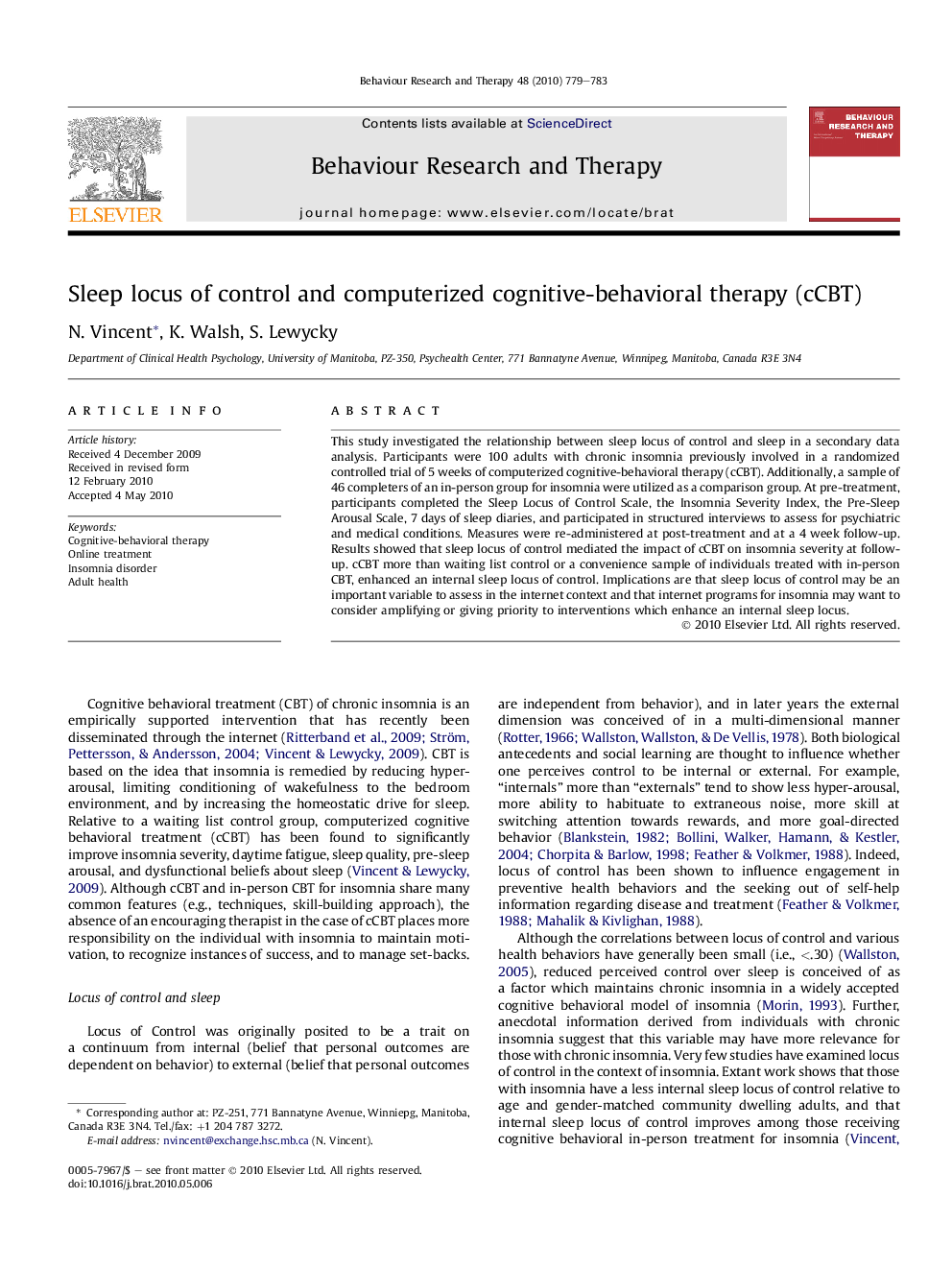| Article ID | Journal | Published Year | Pages | File Type |
|---|---|---|---|---|
| 10444551 | Behaviour Research and Therapy | 2010 | 5 Pages |
Abstract
This study investigated the relationship between sleep locus of control and sleep in a secondary data analysis. Participants were 100 adults with chronic insomnia previously involved in a randomized controlled trial of 5 weeks of computerized cognitive-behavioral therapy (cCBT). Additionally, a sample of 46 completers of an in-person group for insomnia were utilized as a comparison group. At pre-treatment, participants completed the Sleep Locus of Control Scale, the Insomnia Severity Index, the Pre-Sleep Arousal Scale, 7 days of sleep diaries, and participated in structured interviews to assess for psychiatric and medical conditions. Measures were re-administered at post-treatment and at a 4 week follow-up. Results showed that sleep locus of control mediated the impact of cCBT on insomnia severity at follow-up. cCBT more than waiting list control or a convenience sample of individuals treated with in-person CBT, enhanced an internal sleep locus of control. Implications are that sleep locus of control may be an important variable to assess in the internet context and that internet programs for insomnia may want to consider amplifying or giving priority to interventions which enhance an internal sleep locus.
Related Topics
Health Sciences
Medicine and Dentistry
Psychiatry and Mental Health
Authors
N. Vincent, K. Walsh, S. Lewycky,
